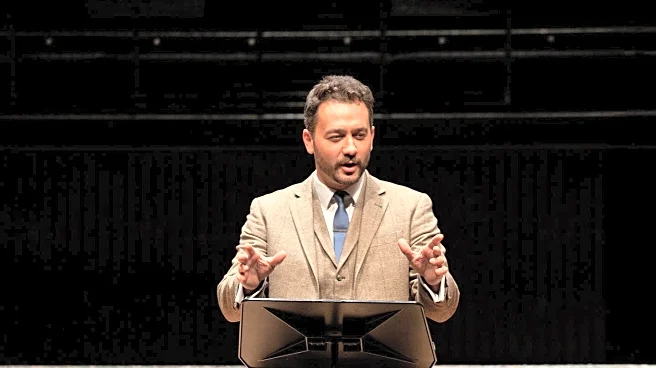What's Happening?
The Swallow Hill BanjoFest took place in Denver, bringing together banjo enthusiasts for a day filled with music and learning. The event featured a variety of workshops and concerts, allowing participants
to immerse themselves in the unique sounds of the banjo. The festival provided a platform for both amateur and professional musicians to share their passion for the instrument, fostering a sense of community among attendees. The event highlighted the cultural significance of the banjo and its role in American music, drawing fans from across the region to celebrate its distinctive twang and rhythm.
Why It's Important?
The Swallow Hill BanjoFest serves as a cultural touchstone for the Denver community, promoting the appreciation of traditional American music. Events like this contribute to the preservation and dissemination of musical heritage, offering educational opportunities for new generations of musicians. By hosting workshops, the festival encourages skill development and artistic expression, which can lead to increased interest in music education and cultural activities. The gathering also boosts local tourism and supports the economy by attracting visitors to the area, benefiting local businesses and cultural institutions.
What's Next?
The success of the Swallow Hill BanjoFest may inspire similar events in the future, potentially expanding to include other traditional instruments and musical genres. Organizers might consider increasing the scope of the festival to attract a wider audience, including collaborations with local schools and music programs to further engage the community. As interest in traditional music grows, there could be more opportunities for musicians to perform and teach, fostering a vibrant cultural scene in Denver.
Beyond the Headlines
The festival underscores the importance of cultural preservation in an increasingly digital world, where traditional music can often be overshadowed by modern genres. By celebrating the banjo, the event highlights the instrument's historical roots and its influence on various music styles, including folk, bluegrass, and country. This focus on heritage can encourage broader discussions about cultural identity and the role of music in shaping societal values.









